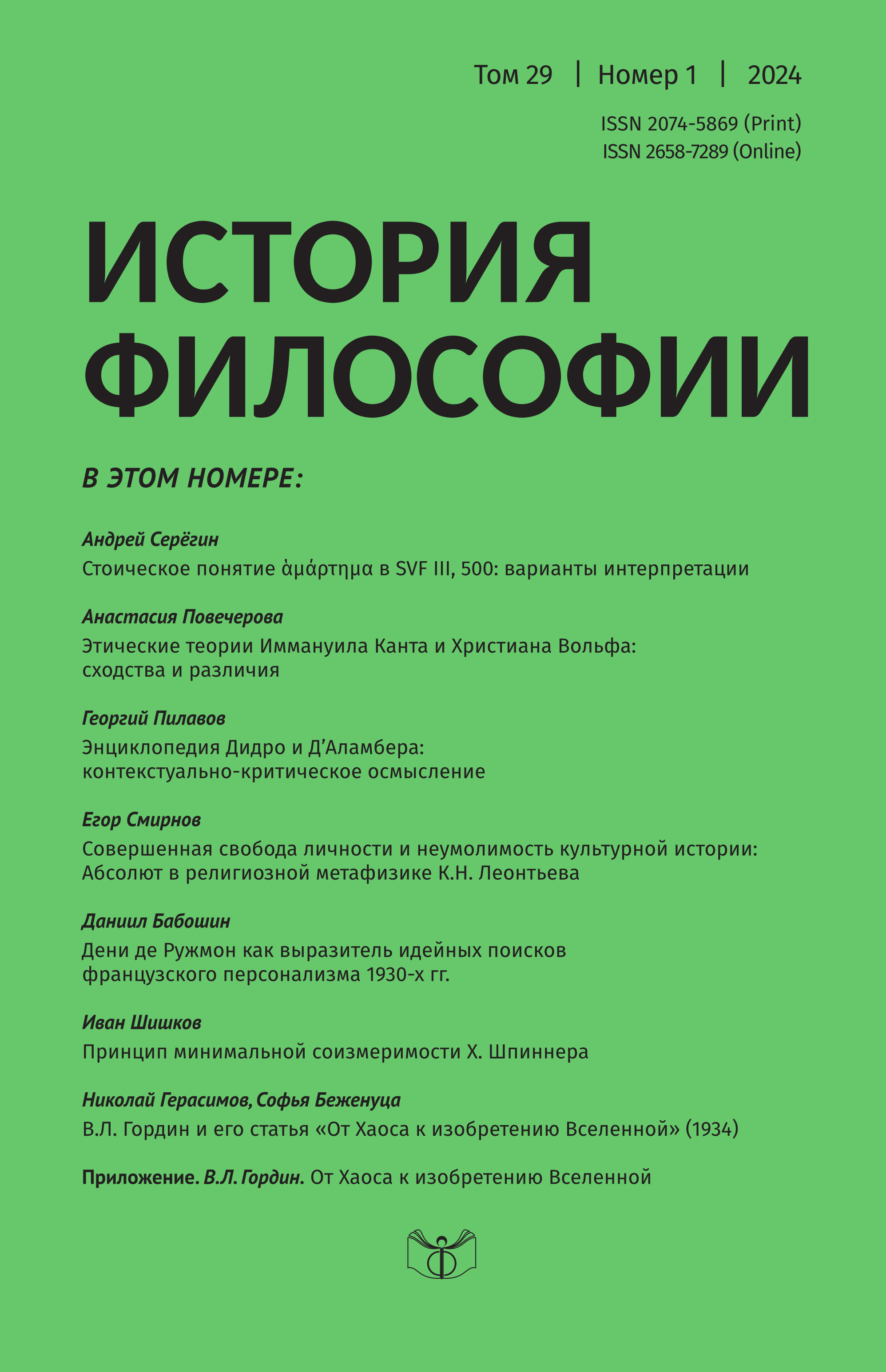Ethical Theories of Immanuel Kant and Christian Wolff: Similarities and Differences
DOI:
https://doi.org/10.21146/2074-5869-2024-29-1-29-42Keywords:
Christian Wolff, Immanuel Kant, ethics, morality, moral law, natural law, nature, perfection, GodAbstract
The article compares the ethical concepts of Christian Wolff and Immanuel Kant and identifies not only coincidences, but also, mainly, their fundamental differences. On the one hand, Wolff denies the possibility of attributing good or evil to an action depending on the will of God. On the other hand, the Creator is the one who actualizes the existing relationship between things, and therefore moral assessment is still inseparable from him. For Kant, the divine will is completely excluded as a source of moral law, but at the same time it is a natural result of the consistent fulfillment of the moral dictates of reason. The concept of freedom is equally important for both thinkers. Wolff insists on its necessity, but hardly justifies its possibility, since he attributes any immoral action not to freedom of choice, but to a lack of knowledge. The philosopher does not assume a mismatch of will and reason. In addition, the thinker assumes a universal determinism of nature, the latter expresses itself in a natural law, which also coincides with the divine law. The basic principle of Wolfian ethics is perfection, which is not strictly defined and which Kant himself considers unclear. Thus, the moral character of an action, according to Wolff, depends not only on these laws, but also on the principle of perfection. At the same time, for Kant, the morality of an action depends on compliance with the moral law, and first of all, the intention preceding the action or inaction is evaluated. In Wolff'’s case, the consequence arising from the act is subject to evaluation, which is the opposite of Kant’s ideas.

